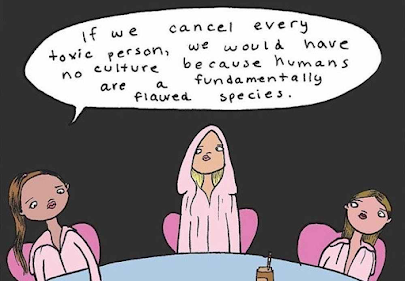Unsurprisingly, the topic of this post combines my work and academic life.
Just a quick refresher: I'm working in a higher ed institution within a team composed of #instructional designers, #learning specialists, #learningtechnologists, and other related hashtags you could find on social media that would define people solving all kinds of instructional issues by combining creative thinking and technologies with multiple affordances.
My team has been growing a lot in the past few months, as we went from 10 to 20 people within a year. We also relocated to a different setting composed of one open space and some private offices, and we divide our activities between onsite and remote work.
During our team meetings, one question that comes frequently to the table is the use of various digital tools to help us communicate better and manage projects more effectively. In that matter, our boss wants us to choose between Microsoft Teams and our organization's knowledge exchange system (KES). We try to explain that we do not use them for the same purpose, he keeps asking us to take a decision.
This week's readings had perfect timing as they provided several elements to organize my thoughts more clearly on the question of the use and usefulness of social media in the workplace. The paper from Jarrahi & Swayer (2013) confirmed my personal use of social media for my professional purposes, as I rely on them to search for experts and expertise, socialize, and broaden my horizon. Also, it describes what I experience in my daily practice, with social media's affordances enhancing informal learning and increasing social awareness. That being said, the question raised by my manager during our meeting also points out the potential limitations and downsides of using social media at work, and more specifically using multiple social media as professional tools. Jarrahi & Swayer (2013) just scratched the surface on that matter, so I explored the Web to know more and find out a recent study from Forsgren & Byström (2017) focusing on contradictions and congruencies of social media being used at work. I will add this paper to our Diigo group, and I will highlight some insights if you're interested (this is a loooonnnng reading, and I admit I skimmed and focused on the main findings).
Very briefly, this article provides plenty of information that confirms thoughts of Jarrahi & Swayer (2013). It also mentions that, while social media in the workplace increase social awareness, allow workers to highlight valuable knowledge created on platforms, and influence creative tasks and innovation, multiple tools also proved to have a negative impact on routine work, they create redundancies between social media tools and between social media and long-standing, internal systems. Importantly, the authors quoted previous research and pointed out that because people perceive and use social media very differently, their implementation in the workplace can complexify relationships and environments.
"The variation of usage could result in isolation of both resources and groups and create barriers for information sharing as well as reduce networking (Yuan et al., 2013)."
I will read this paper more thoroughly but it already gave me some hints on how to address the question of "Teams versus KES" in my next meeting with my team and my manager. Indeed, according to the authors, one way to evaluate the usefulness of Web 2.0-related tools is to address them in an activity theory framework approach. In practice, the authors "argue that it is more useful to analyse social media as part of interlinked activity systems to gain insights in how they transform everyday work; how they permeate different levels of work and reveal related contradictions and congruencies."
References
- Forsgren, & Byström, K. (2018). Multiple social media in the workplace: Contradictions and congruencies. Information Systems Journal (Oxford, England), 28(3), 442–464. https://doi.org/10.1111/isj.12156
- Jarrahi, M. H., & Sawyer, S. (2013). Social technologies, informal knowledge practices, and the enterprise. Journal of Organizational Computing and Electronic Commerce, 23(1-2), 110-137. doi:10.1080/10919392.2013.748613
- Yuan, Y. C., Zhao, X., Liao, Q., & Chi, C. (2013). The use of different information and communication technologies to support knowledge sharing in organizations: From E‐mail to micro‐blogging. Journal of the American Society for Information Science and Technology, 64(8), 1659–1670. https://doi.org/10.1002/asi.22863

Comments
Post a Comment